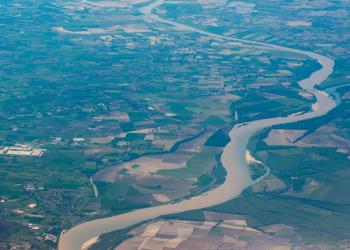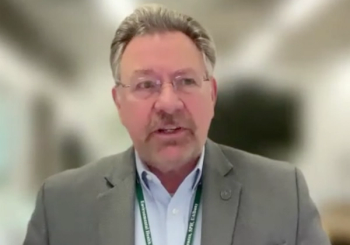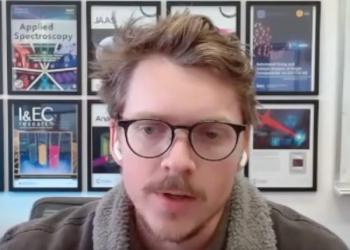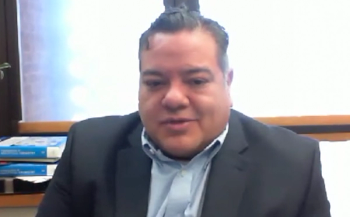
Spectroscopy Announces the Winner of the 2022 Emerging Leader in Atomic Spectroscopy Award
Denise Mitrano, an assistant professor in the Department of Environmental Systems Science at ETH Zurich, in Switzerland, has won the 2022 Emerging Leader in Atomic Spectroscopy Award, which is presented by Spectroscopy magazine.
Denise Mitrano, an assistant professor in the Department of Environmental Systems Science at ETH Zurich, in Switzerland, has won the 2022 Emerging Leader in Atomic Spectroscopy Award, which is presented by Spectroscopy magazine. This annual award, begun in 2017, recognizes the achievements and aspirations of a talented young atomic spectroscopist, selected by an independent scientific committee. The award will be presented to Mitrano at the 2022 Winter Conference on Plasma Spectrochemistry (Tucson, Arizona, January 16–22, 2022) where she will give a plenary lecture.
Mitrano’s research is directed to understanding the impact and interaction of nanoparticles in the environment using atomic spectroscopy techniques, such as inductively coupled plasma–mass spectrometry (ICP-MS) and single-particle ICP-MS (sp-ICP-MS).
Mitrano helped develop the technique of sp-ICP-MS during her work on her PhD thesis at the Colorado School of Mines, and has continued to develop the technique. A major aspect of this work has been developing methods for distinguishing between ionic and nanoparticle fractions, resolution of polydisperse nanoparticle samples, and defining the technique’s dynamic range (in terms of both particle size and concentration). Her studies using silver nanoparticles have determined the influence of particle-capping agents and water chemistry parameters in a variety of synthetic, natural, and processed waters. The International Organization for Standardization (ISO) cited Mitrano’s work in the ISO standard for determining size distribution and concentration of inorganic nanoparticles in aqueous media via sp-ICP-MS (ISO/TS 19590:2017).
Mitrano has become a leader in the area of nanometrology, including the detection and transformation of particles in consumer products and in the environment. She is particularly interested in developing new analytical tools to systematically understand the mechanisms and processes driving the fate, transport, and biological interactions of particles, including engineered nanomaterials and nano- and microplastics.
An example is her use of metal-doped nanoplastics to investigate the fate and transport behavior of micro- and nanoplastic particles in complex environmental systems. She has pioneered a new approach to synthesize nano- and microplastics doped with a trace metal to more easily, and quickly, quantify them in complex matrices using techniques which are more standardized in metals analysis, including ICP-MS and single-particle ICP-MS. By using the metal as a proxy for the plastics, one can spike them into a variety of laboratory and pilot-scale facilities, which allows investigation of the fate and transport of plastics in environmental systems (waterways, porous media) and in wastewater and drinking water treatment plants, enabling the study of biological uptake and interactions of these plastics. This approach has opened up a completely new avenue for those studying plastic pollution and has provided many new opportunities to utilize atomic spectroscopy in a field which otherwise would not have been possible.
She also has worked at the boundaries of environmental science, materials science, and policy to promote sustainability and environmental health and safety of new materials, advocating for a “safer by design” approach for both nanomaterials and plastics.
Mitrano has published 42 papers in peer-reviewed journals and has given more than 18 invited keynote lectures at international scientific conferences, in addition to presenting more than 38 oral conference presentations.
Mitrano has received numerous other awards. Most recently, she received the Swiss National Science Foundation (SNSF) Marie Heim Vögtlin Prize for Outstanding Young Woman Researcher of the Year in Switzerland (2022) and the 2022 James J. Morgan Early Career Award from the journal Environmental Science and Technology (ES&T) and the ACS Division of Environmental Chemistry. Other key awards include Swiss National Science Foundation Ambizione Fellowship for 2017–2020, a Swiss National Science Foundation Eccellenza Professorial Fellowship for 2020–2025, a “Top 5 exceptional paper, 2014” recognition from ES&T, and a 2012 Fullbright scholarship.
For information about how to nominate a young scientist for the 2023 award, please see the
Newsletter
Get essential updates on the latest spectroscopy technologies, regulatory standards, and best practices—subscribe today to Spectroscopy.



